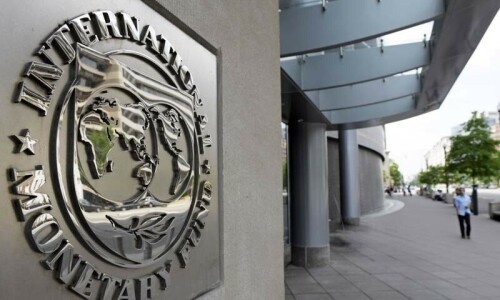THE National Electric Regulatory Authority (Nepra) is considering revoking K-Electric’s status as the sole licensed electricity provider to Karachi. According to the Nepra notice inviting suggestions, the licence is being amended because of excessive loadshedding, excessive billing and safety issues, and because KE has not expanded its distribution network. However, the claim is not backed by any statistics. Moreover, Nepra itself has acknowledged KE’s much improved performance against all Discos in loss control, loadshedding reduction and expansion of the consumer base.
Has the competition model proposed by Nepra been successfully implemented in any other city? Karachi is the country’s economic hub contributing over 20 per cent to the national GDP. By virtue of its size, this city is not a place where unproven experiments can be conducted with a service as essential as electricity. In the event that desired results are not achieved, the socio-economic implications for millions of people, as well as Pakistan would be severe.
Will the new entrants only be granted licences to generate electricity and will K-Electric’s existing transmission and distribution network continue to be used? How well-thought-out is the decision to further neglect the already neglected transmission and distribution network in the city, and favour generation, considering that there is already a supply glut in the country, with citizens making capacity payments through high energy rates?
If more generation is going to be added, will it not lead to even more idle capacity, and more capacity payments? If this is what the new proposal envisages, then why not simply sell more electricity to KE, since NTDC already does that.
As a regulator and policy-maker, Nepra must also consider the social impact of its decisions and not benefit the rich at the expense of the vulnerable communities.
The present utility model cross-subsidises customers ensuring that the revenues earned from the more privileged customers go towards investments that benefit the poor. Any commercial and unregulated new entrant will cherry-pick the best customers, ignoring those areas where billing is an issue and power theft is high.
And who will cater to public-sector customers such as the CDGK, KMC, KDA, KWSB, all of which are essential to the city, but not the best when it comes to paying bills? Considering there are so many fundamental questions that remain unanswered, it is clear that the decision to modify K-Electric’s licence is being pursued in haste because of public outcry. If Nepra’s objective is to only silence that outcry in the shortterm, as opposed to actually bringing about an improvement in Karachi’s electricity supply challenges through sustained investments, then it is essential that this proposal goes back to the drawing board instead of being implemented in its current half-baked form.
Natasha Mahboob Ansari
Karachi
Published in Dawn, October 3rd, 2020








































Dear visitor, the comments section is undergoing an overhaul and will return soon.